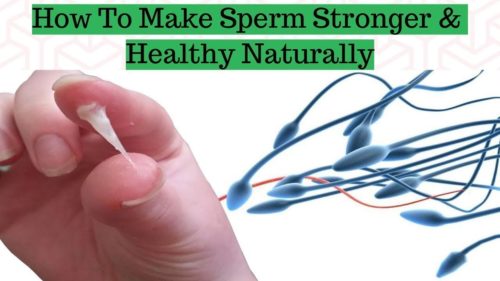Childhood Cancer and Fertility Options for Young Men
Many men who survived childhood cancer would like to start families of their own, but cancer treatment can take a toll on their fertility.
Fortunately, they may have options. The journal Current Opinion in Urology recently published a review of fertility preservation studies, focusing on male childhood cancer survivors. Adolescents and young adults may bank their sperm before cancer treatment. The cells can then be frozen and stored for in vitro fertilization (IVF) later. Options for prepubescent boys are more limited. Scientists are experimenting with the preservation of testicular tissue before cancer treatment.
More childhood cancer patients are surviving into adulthood nowadays, and many of those patients would like to start families. Scientists have been exploring ways to preserve fertility before cancer treatment starts.
A recent paper in Current Opinion in Urology discusses some of the options for boys. Some methods are available now, while others are in the experimental stages.
Dr. Richard N. Yu of Boston Children’s Hospital examined articles published between January 2017 and April 2019 for this review.
Doctors and families should discuss fertility preservation before treatment begins, as sperm cells can be damaged during therapy, Dr. Yu said.
Sperm preservation is an option.
For adolescents and young adults, sperm banking is the “gold standard” option. Sperm cells may be collected through masturbation or removed from testicular tissue in a sperm extraction procedure. Testicular biopsy and electro-ejaculation (ejaculation with the help of electrical stimulation) are other methods.
Once the sperm is obtained, it can be cryopreserved – carefully frozen and stored so that the cells can be used to create embryos at a later time.
Options for boys who have not yet reached puberty are more limited. For these patients, testicular tissue or cells may be removed in a biopsy procedure and be cryopreserved. This surgery might be combined with other cancer-treating surgeries.
However, preserving testicular tissue from prepubertal boys is still in the experimental stages, and there have been no clinical studies on its effectiveness in humans. But some animal studies have had encouraging results. For example, scientists have collected testicular tissue from prepubertal rhesus macaques (a type of monkey that is anatomically similar to humans), frozen it for later use, fertilized egg cells, and created a healthy baby monkey.
Further research is needed in this area, Dr. Yu noted. He added that there can be ethical concerns with this type of preservation and that the advantages and disadvantages must be carefully considered.
For more information about cancer and fertility, please see these links:
Preserving Sex Life and Fertility for Cancer Patients
Sex and Fertility Issues May Continue Two Years After Testicular Cancer Diagnosis
Pre-Treatment Sex and Fertility Counseling
Fertility Options for Men with Cancer
Resources
Current Opinion in Urology via Medscape
Yu, Richard N.
“Fertility Preservation in the Pediatric Cancer Patient”
(Full-text. September 2019)





 The researchers attribute their successful trial to the active agent in the pill, which is two hormones in one. Part progestin and part modified testosterone, the hybrid molecule means that the consumer always has matching levels of the hormones in the body.
The researchers attribute their successful trial to the active agent in the pill, which is two hormones in one. Part progestin and part modified testosterone, the hybrid molecule means that the consumer always has matching levels of the hormones in the body. A hormonal contraceptive for men would provide a dramatic new option for men around the world. And the potential reasons for men to be interested are many. For single men, it could mean taking more control and autonomy over their sex life. For couples, it offers new options to share responsibility.
A hormonal contraceptive for men would provide a dramatic new option for men around the world. And the potential reasons for men to be interested are many. For single men, it could mean taking more control and autonomy over their sex life. For couples, it offers new options to share responsibility.




 Because of this huge drop in male fertility, researchers have been looking at how different modifiable factors, such as lifestyle choices, might affect male fertility.
Because of this huge drop in male fertility, researchers have been looking at how different modifiable factors, such as lifestyle choices, might affect male fertility. 10 Ways You Can Improve Male Fertility
10 Ways You Can Improve Male Fertility
 Among couples being treated for infertility, depression in the male partner was linked to lower pregnancy chances, while depression in the female partner was not found to influence the rate of live birth, according to a study funded by the National Institutes of Health.
Among couples being treated for infertility, depression in the male partner was linked to lower pregnancy chances, while depression in the female partner was not found to influence the rate of live birth, according to a study funded by the National Institutes of Health. The World Health Organization estimates that one in every four couples of reproductive age in developing countries experiences childlessness despite five years of attempting pregnancy.
The World Health Organization estimates that one in every four couples of reproductive age in developing countries experiences childlessness despite five years of attempting pregnancy. 10 Ways You Can Improve Male Fertility
10 Ways You Can Improve Male Fertility
 As you can see – there are many methods that men can use to improve the health of their sperm. Of course, certain things will make more of a difference than others.
As you can see – there are many methods that men can use to improve the health of their sperm. Of course, certain things will make more of a difference than others.
 When taking ibuprofen in doses commonly used by athletes, a small sample of young men developed a hormonal condition that typically begins, if at all, during middle age. This condition is linked to reduced fertility.
When taking ibuprofen in doses commonly used by athletes, a small sample of young men developed a hormonal condition that typically begins, if at all, during middle age. This condition is linked to reduced fertility.


